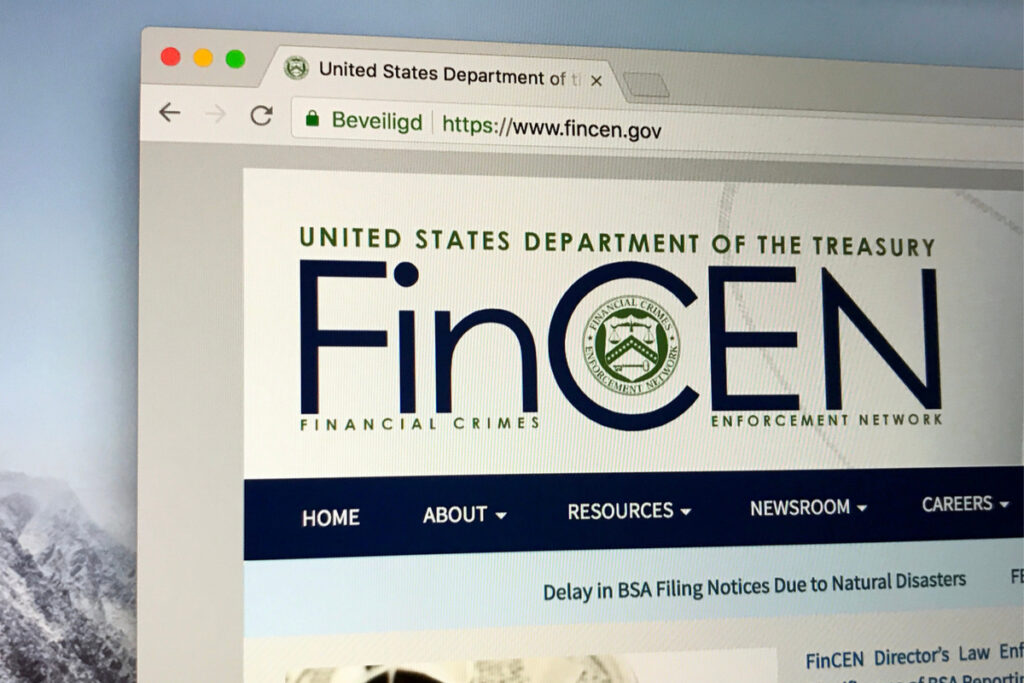WASHINGTON, D.C. – The U.S. Treasury Department Financial Crimes Enforcement Network (“FinCEN”) at the end of June issued guidelines for financial institutions that clarified due diligence guidance for hemp-related businesses.
The recommendations outline information and documentation financial institutions are required to collect from hemp businesses, in order to comply with Bank Secrecy Act (BSA) and Anti-Money Laundering (AML) regulations.
Legal firm Paul Hastings published on its blog that the new guidance applies to “businesses or individuals that grow hemp, and processors or manufacturers who purchase hemp directly from such growers, and does not replace or supersede FinCEN’s earlier guidance regarding marijuana-related businesses operating in violation of the CSA (Controlled Substances Act),” which was issued in 2014.
The new FinCen guidelines noted hemp-related businesses are no longer federally prohibited and are not subject to Suspicious Activity Reports (SAR) that are obligated to be filed in regards to hemp-related activities, if clients are licensed and compliant with federal and local requirements.
However, activity that should be reported included:
- A customer appears to be engaged in hemp production in a state or jurisdiction in which hemp production remains illegal.
- A customer appears to be using a state-licensed hemp business as a front or pretext to launder money derived from other criminal activity or derived from marijuana-related activity that may not be permitted under applicable law.
- A customer engaged in hemp production seeks to conceal or disguise involvement in marijuana-related business activity.
- The customer is unable or unwilling to certify or provide sufficient information to demonstrate that it is duly licensed and operating consistent with applicable law, or the financial institution becomes aware that the customer continues to operate (i) after a license revocation, or (ii) inconsistently with applicable law.
The new guidance also provides financial institutions information about requirements for required documentation, and said “institutions may confirm the hemp grower’s compliance with state, tribal government, or the USDA licensing requirements, as applicable, by either obtaining (1) a written attestation by the hemp grower that they are validly licensed, or (2) a copy of such license.
“The extent to which a financial institution will seek additional information beyond the steps outlined above will depend on the financial institution’s assessment of the level of risk posed by each customer,” FinCEN guidance continued.
Other documentation that may be required from customers, in order for institutions to access the level of risk associated with a customer, may include “crop inspection or testing reports, license renewals, updated attestations from the business, or correspondence with the state, tribal government, or USDA (U.S. Department of Agriculture).”
In addition, the guidance said financial institutions were expected to monitor hemp-related clients for suspicious behavior as they would any client, and that hemp businesses are required to observe any other applicable banking regulations.
Transaction reports should be filed per federal regulations, as with any other customer, but the guidance pointed out:
“Similarly, any person or entity engaged in a non-financial trade or business would need to report on FinCEN Form 8300 (Report of Cash Payments Over $10,000 Received in a Trade or Business) transactions in which the person receives more than $10,000 in cash and other monetary instruments from a hemp-related business for the purchase of goods or service.”
Hemp cultivation was legalized in the U.S. with the passage of the Farm Act of 2018, which removed hemp from the list of federal controlled substances. Federal regulation of the hemp industry has lagged behind, and is currently overseen by the USDA.
Hemp is a variety of cannabis required by law to contain only trace amounts of psychoactive cannabinoid THC, and has many industrial uses. Historically, the U.S. is the largest global importer of hemp and hemp products from countries were it has long been legal, including France and the Netherlands. Hemp is a raw material for most CBD-infused products, as well as for products in the food and textiles markets, among other uses.

